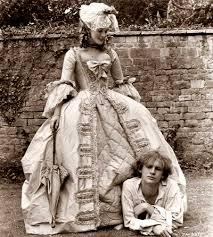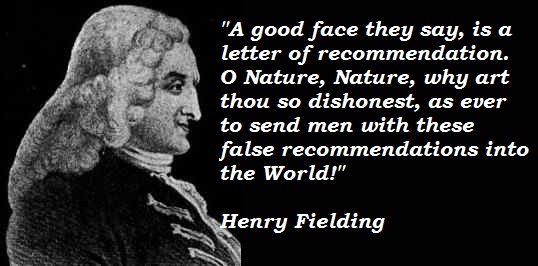What do you think?
Rate this book


599 pages, Paperback
First published January 1, 1742
The postillion hearing a man's groans, stopt his horses, and told the coachman, he was certain there was a dead man lying in the ditch, for he heard him groan. "Go on, sirrah," says the coachman; "we are confounded late, and have no time to look after dead men." A lady, who heard what the postillion said, and likewise heard the groan, called eagerly to the coachman to stop and see what was the matter. Upon which he bid the postillion alight, and look into the ditch. He did so, and returned, "that there was a man sitting upright, as naked as ever he was born." — "0 J — sus!" cried the lady; "a naked man! Dear coachman, drive on and leave him." Upon this the gentlemen got out of the coach; and Joseph begged them to have mercy upon him: for that he had been robbed and almost beaten to death. “Robbed !” cries an old gentleman: "let us make all the haste imaginable,or we shall be robbed too." A young man who belonged to the law answered, "He wished they had passed by without taking any notice; but that now they might be proved to have been last in his company; if he should die they might be called to some account for his murder. He therefore thought it advisable to save the poor creature's life, for their own sakes, if possible; at least, if he died, to prevent the jury's finding that they fled for it. He was therefore of opinion to take the man into the coach, and carry him to the next inn." The lady insisted, "That he should not come into the coach. That if they lifted him in, she would herself alight: for she had rather stay in that place to all eternity than ride with a naked man." The coachman objected, "That he could not suffer him to be taken in unless somebody would pay a shilling for his carriage the four miles." Which the two gentlemen refused to do. But the lawyer, who was afraid of some mischief happening to himself, if the wretch was left behind in that condition, saying no man could be too cautious in these matters, and that he remembered very extraordinary cases in the books, threatened the coachman, and bid him deny taking him up at his peril; for that, if he died, he should be indicted for his murder; and if he lived, and brought an action against him, he would willingly take a brief in it. These words had a sensible effect on the coachman, who was well acquainted with the person who spoke them; and the old gentleman above mentioned, thinking the naked man would afford him frequent opportunities of showing his wit to the lady, offered to join with the company in giving a mug of beer for his fare; till, partly alarmed by the threats of the one, and partly by the promises of the other, and being perhaps a little moved with compassion at the poor creature's condition, who stood bleeding and shivering with the cold, he at length agreed; and Joseph was now advancing to the coach, where, seeing the lady, who held the sticks of her fan before her eyes, he absolutely refused, miserable as he was, to enter, unless he was furnished with sufficient covering to prevent giving the least offence to decency — so perfectly modest was this young man...
Though there were several greatcoats about the coach, it was not easy to get over this difficulty which Joseph had started. The two gentlemen complained they were cold, and could not spare a rag; the man of wit saying, with a laugh, that charity began at home; and the coachman, who had two greatcoats spread under him, refused to lend either, lest they should be made bloody: the lady's footman desired to be excused for the same reason, which the lady herself, notwithstanding her abhorrence of a naked man, approved: and it is more than probable poor Joseph, who obstinately adhered to his modest resolution, must have perished, unless the postillion (a lad who hath been since transported for robbing a hen-roost) had voluntarily stript off a greatcoat, his only garment, at the same time swearing a great oath (for which he was rebuked by the passengers), "that he would rather ride in his shirt all his life than suffer a fellow-creature to lie in so miserable a condition."


